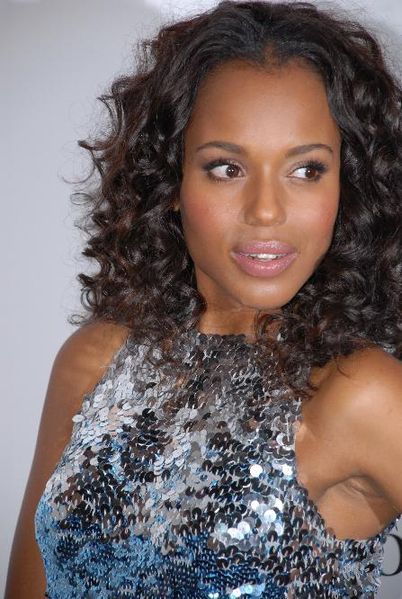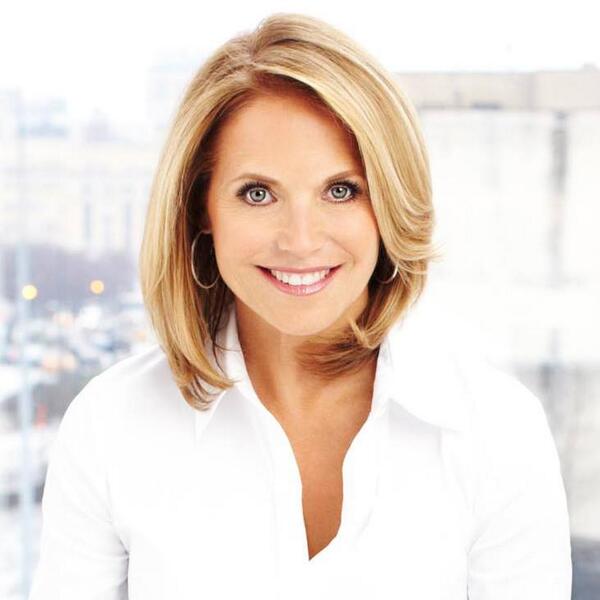Kerry Washington, Eating Disorders And The Body Love/Hate Relationship

While her confession is heartbreaking, her story is not a unique one: she used food as an emotional outlet, and then, feeling guilty, she would excessively exercise to relieve the shame she felt. She isolated herself from others; in college, she would tell others she was in the library but instead go to the gym to purge the extra calories.
Washington, and others placed in her position, such as singers Demi Lovato and Lady Gaga, Katie Couric, Entertainment Tonight's Rocsi Diaz, "Pretty Little Liar's" Lucy Hale and thousands of people in the United States alone, struggle from an inundation of material telling them that thin is the only form pretty, that "nothing tastes as good as skinny feels." The "thin" depicted in this material isn't even thin itself, it's a digitally-edited, unrealistic portrayal of the human (often female) form that is painted the paragon of beauty and attractiveness.
The unhealthy relationship with food, this cultural obsession with overexercising and the guilt carried with both is rooted in one problem: shame.
Washington describes the guilt inherent with her emotional overeating, which lead to her need to exercise for hours, which only furthered her shame because she didn't want anyone to know what she was doing.
To me, Washington's story is inspirational, because she did two of the most difficult things for any individual struggling with an addiction or stigmatized illness or disorder: she got help, and then, she spoke up. She goes to a therapist and a nutritionist, and she strives to be healthy and never go back to her self-harming behavior, even with her success in Hollywood, the body shame capital of the world.
It's easy enough to tell women to ignore the countless magazine covers, the film photo shoots and the doctors all preaching the thin ideal. It's easy enough to tell them to love their body, that they aren't beholden to anyone and that the only person whose opinion is their own. But there's plenty of conflicting material telling them otherwise, in a society obsessed with critiquing appearances of others. Neon Tommy is just as guilty as any other media source: we focus so much on style, bodies and appearances, and then act surprised when someone comes out confessing she suffered or suffers from an eating disorder.
Societally, women aren't allowed to love their bodies. Because women are criticized for being overweight, even if the culturally perceived definition of "overweight" is anything more than size 1. Because women are criticized for attempting to reach that chimerical image of thinness. Because women are criticized for being naturally thin, accused of having an eating disorder, and then they begin to wonder: what if I did have an eating disorder? What then?
Here's the thing: whether you tell a woman to starve herself or force the opinion on her that she already is, the shame is present. You're not allowed to be fat. You're not allowed to be thin. You're not allowed to exercise. You're not allowed to eat. You're not allowed to like your body. You're not allowed to hate your body. Your body is our commodity, and we get to tell you what you should and shouldn't do with it.

I see "thinspiration" or "thinspo" blogs preaching a mixture of exercise obsession and body shame. I see people making fun of those who diet or exercise: if they're skinny, how dare they want to diet or exercise, because they look fine! If they're overweight, they're trying to conform to the societal ideal.
This "love your body" mentality that serves as a backlash to the thin culture propagated by media is not without faults. Because what if you don't love your body? The truth is, you don't have to love your body. You should be welcome to feel however you want about your body. You can hate it, if you want. I'll tell you what: I hate my knobby knees, and my hair, and my eyebrows, and my skin and my voice and my nails and my thighs. But no, you say! Don't hate your body! All bodies are beautiful! So then I say, but I like my eyes, and I like my hands and feet and nose. But then, you tell me I'm vain, and an attention whore and that, by loving anything about my body, I'm contributing to the problem and forcing women to strive for unreasonable expectations of beauty. Obviously, these are both extreme examples, but I've experienced both responses personally, and the varying extremes of both opinions have led me to the following opinion.
Your body is neutral. Really. It's inherently neutral—it's not "all bodies are beautiful" or "love everything about you" or "the thin way is the pretty way" or whatever, because the only thing you should strive for your body should be is healthy. And if you love it and think it's hot as hell, then good for you. That's excellent. But if you hate it, or aspects of it, then that's okay too. Because you shouldn't be forced to feel one way or another about it. Overexercising, extreme diets, overeating, eating disorders, those aren't healthy. But if your thin friend says that she's going to go for a run, tell her to have a good time, and drink water, and if she wants a buddy and you're up for it, go with her. And if your overweight friend says that she's going to try a diet, send her tips for healthy and delicious recipes. And if your thin friend says that she's going to order a salad, you don't have a right to say anything about it, and your overweight friend says that she's going to eat a high calorie snack, you don't have a right to say anything about it either. They are the masters of their own bodies, not you, and you don't have a right to comment on it.
The educational programs trying to raise young girls' self esteems are fantastic. But they should teach girls to form their own opinions about their bodies, without influence from media or other groups, and they should teach them that healthiness, and healthy choices, are the best way to gain body peace. Not body love, not body shame. Just peace. Love and hate are two sides of the same coin, and it's a harmful one, at that.

I don't want a good or bad relationship with my body. I want a healthy relationship with my body. I want to be content with my body, and I want it to be my own, not subjected to anyone else's opinions, not love, not hate, not shame or effusive praise. This is called "body positivity" and it's not always easy, what with the flurry of images and information praising or demonizing the opposing aforementioned extreme, but it's a good place to start. So love your body, if that's what comes naturally to you, or hate it or fall somewhere in between, as long as it's your perspective and no one else's. Just try to live well, in whatever way works for you.
I just want to be okay with my body. Not anything more than that. And that's a message so many women (and men—really, anyone) should hear and heed. Be okay with however you feel. And you don't have to do anything more than that, so don't feel obligated.
Staff Reporter Christine Bancroft can be reached here or found on Twitter here.



